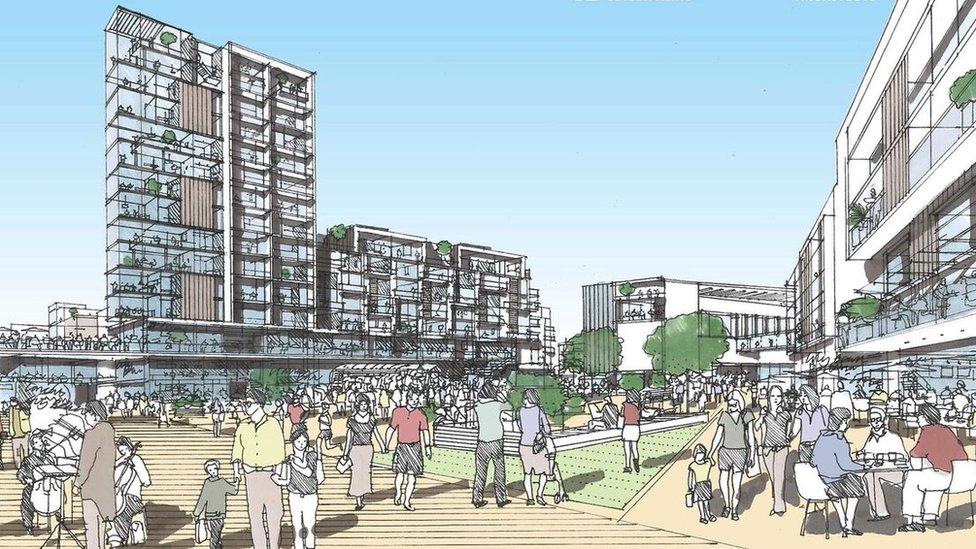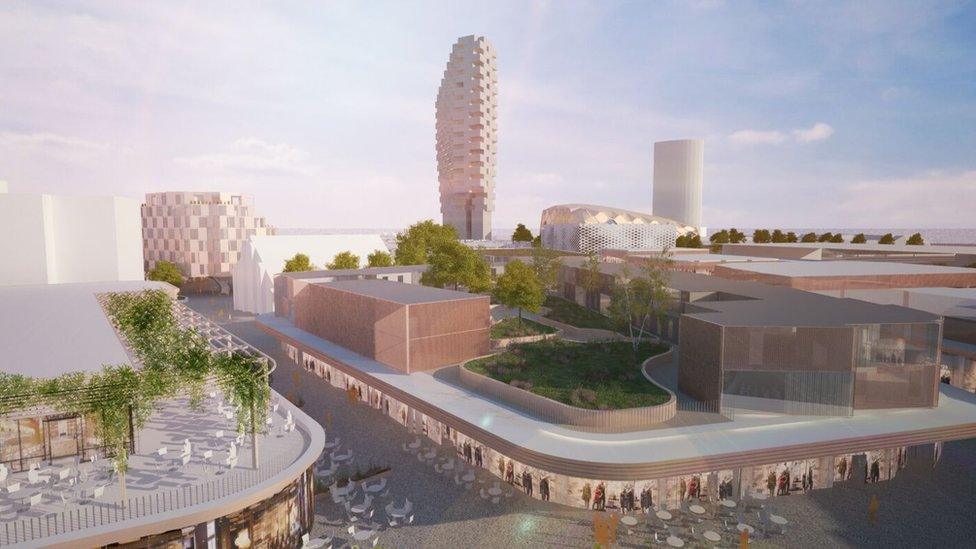Swansea's £500m city revamp 'not hampered' by Brexit
- Published
A taste of what is to come
Plans for a £500m revamp of Swansea city centre should not be affected by Britain's decision to leave the EU, its council leader has said.
The work, including shops, an arena, aquarium and a city beach will be the biggest landscape change in Swansea in a century.
It is due to start in 2017.
But Rob Stewart is not expecting funding to be an issue, nor with Swansea University's role over the research element of the aquarium.
"None of the funding we [the council] are looking at is coming directly from Europe," Mr Stewart told BBC Wales.
'Significant interest'
"The thing that could affect it is the level of uncertainty over Brexit but we don't see a significant impact from that at present.
"There's still a significant amount of interest in Swansea.
"We've got a significant amount of interest from key retailers and I'm meeting with a couple of those in September."
The main areas to be worked on are the former St David's shopping centre, land next to the leisure centre and the prime civic centre site.

A public space near the current civic centre site will lead to the beach
The retail aspect will double the city's offering and include well-known stores along with others that are not currently outside London or in the UK.
It will run from Whitewalls, include a cafe quarter and be built on an incline so that people at the other end can walk straight over Oystermouth Road to where the arena will be, hosting concerts, shows, conferences and ice skating.
There will also be a high-rise building next to it comprising of a hotel and flats, which could become the tallest in Wales.
An access route will run from there to the aquarium and the city beach which will have an open area as well as the other facilities.
It seems the only potential sticking point with the project could surround the funding for the sea sciences centre within the aquarium if the university hoped to rely on EU funding.
But a spokeswoman said: "The project is in very, very early stages and any decisions regarding the funding of the project would need to be agreed between the university, the council and the developer."
- Published22 January 2016
